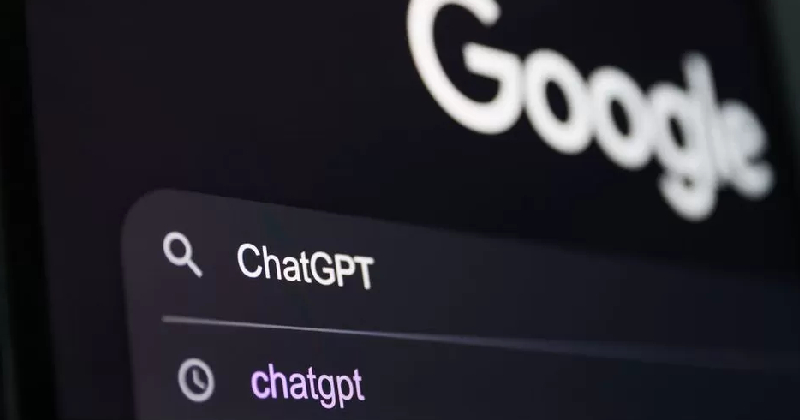As Google reaches its 25th anniversary this month, it finds itself situated within a tech landscape that has undergone profound transformations since its inception in 1998 by founders Larry Page and Sergey Brin.
In its early days, Google operated solely as a search engine, with its initial headquarters being Susan Wojcicki's garage - who would later become the CEO of YouTube.
The remarkable success of Google's search engine over the past 17 years, to the point where the term "Google" has officially entered the dictionary, is well-known.
Since then, the company, now part of the larger Alphabet parent group, has diversified extensively into nearly every facet of the technology industry, establishing dominance in some areas to the extent that it has raised concerns among antitrust regulators. Currently, Google is striving to position itself at the forefront of the AI race, although there are arguments suggesting it may have fallen behind in this endeavor.
Google's Diverse Legacy and the AI Race
Over its illustrious 25-year history, Google has given birth to and acquired numerous products and services, ranging from email and smartphones to software, hardware, driverless cars, digital assistants, and YouTube. Nevertheless, not all of these ventures have proven successful.
The Killed by Google website lists a staggering 288 retired projects, including notable ones like the gaming platform Stadia and the budget VR headset Google Cardboard. Now, the pivotal question revolves around whether Google can maintain its ubiquitous presence in the swiftly evolving realm of artificial intelligence (AI).
Doubts regarding Google's AI standing have surfaced, even from within the company. A leaked memo from a Google engineer made its way onto the internet, wherein he expressed doubts about the firm possessing an AI "secret sauce" and its capacity to win the AI race.
This skepticism was further compounded by the battle of AI chatbots. For many, their first awe-inspiring interaction with AI occurred through ChatGPT, the viral AI chatbot that burst onto the scene in November 2022. OpenAI, its creator, has garnered substantial investments from Microsoft, which is actively integrating it into its own products, such as the Bing search engine and Office 365.

ChatGPT has earned the moniker of the "Google killer" due to its ability to provide comprehensive answers in a single response, rather than presenting pages upon pages of search results. Interestingly, it employs a language-processing architecture called a "transformer," originally invented by Google. However, when Google introduced its own competitor, Bard, a few months later, it failed to make a comparable impact.
Bard's launch was notably cautious; it came with age restrictions, and a senior executive referred to it as "an experiment." Perhaps this level of caution stemmed from an unusual situation preceding Bard's release.
Google's Pursuit of AI Dominance: Lamda's Controversial Role
At the core of a chatbot's functionality lies a Large Language Model (LLM). One of Google's original LLMs, known as Lamda, stirred significant controversy.
An engineer involved in Lamda's development became convinced that it exhibited signs of sentience. He published extensive conversations that, in his view, demonstrated Lamda sharing genuine emotions and thoughts. However, it's essential to note that an LLM's primary function is to generate text that convincingly resembles human language.
Google consistently refuted claims of Lamda possessing sentience, leading to the engineer's dismissal. Nevertheless, the incident made headlines worldwide and heightened concerns about AI, even before such debates gained prominence—an association with headlines Google may have preferred to avoid.
Nonetheless, Google remains committed to advancing AI. At the IO developers conference in May, the company unveiled 25 new AI-driven products. On its website, Google proudly declares itself to be "at the forefront of advancing the frontier of AI." Additionally, Google owns the prominent UK-based AI company DeepMind, whose AI program, AlphaFold, holds the potential to revolutionize the discovery of new medications.
In August, Chirag Dekate, an analyst from Gartner, attended Google Next, an event focused on future technology trends. He remarked that the event emphasized Google's strong dedication to leadership in the emerging Generative AI economy.
Google's AI Potential: More Than Meets the Eye
Carolina Milanesi, an analyst from Creative Strategies, urges caution against prematurely dismissing Google's AI capabilities. She doesn't subscribe to the notion that Google has missed the boat on AI and believes that significant opportunities exist for the company in both the consumer and enterprise AI domains.
Susannah Streeter, the head of money and markets at Hargreaves Lansdown, shares a similar perspective. Streeter suggests that Google's AI prowess might reside within its thriving cloud business. Cloud providers offer access to vast networks of computing resources and processing power that would pose logistical challenges for most organizations to establish independently.
Streeter highlights that Alphabet, Google's parent company, is strategically positioning itself to play a central role in the AI revolution through its Google Cloud business. The growing demand from businesses, regardless of their size, to update their infrastructure and storage for handling substantial generative AI workloads positions Google well in this evolving landscape. While Google Cloud might be the smallest among the top three cloud providers, trailing behind Amazon Web Services and Microsoft Azure, it still wields considerable influence.
Journalist Tim Dowling once embarked on a week-long experiment of avoiding Google's consumer services, likening the experience to "shopping by candlelight" when trying to organize simple tasks. If even a fraction of Google's AI products can integrate as effectively, the company is likely to remain a significant player in the field.